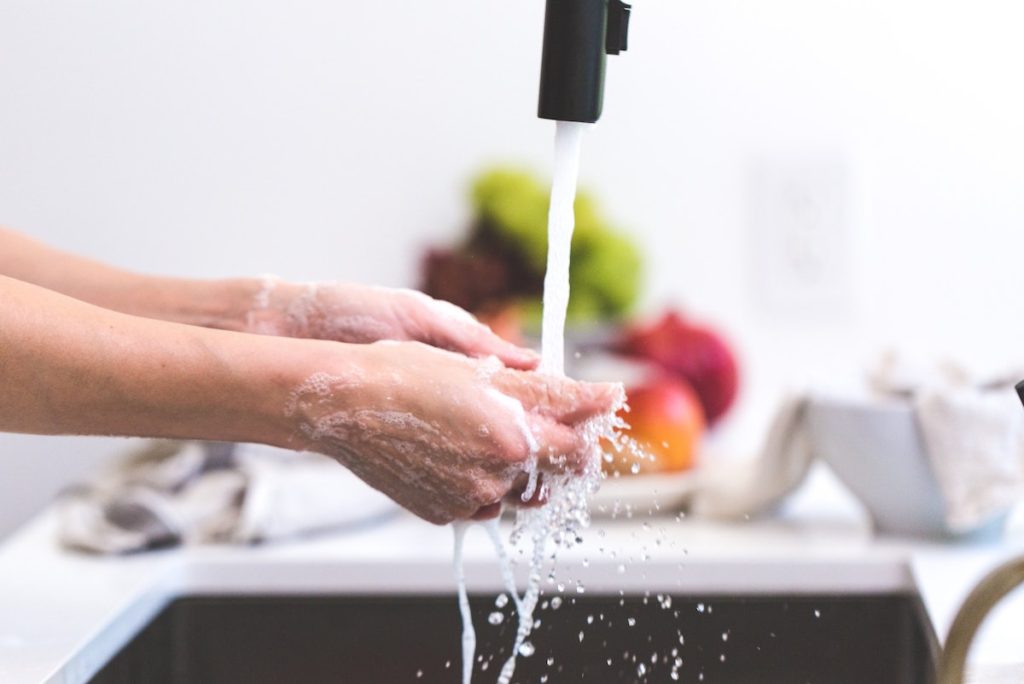With all the advice about the virus and staying safe, how does one even go and get groceries? What is the risk, and what can be done to mitigate those risks? Experts from both the Journal of American Medical Association and the Centers for Disease Control share these important tips for safe grocery shopping during the COVID-19 pandemic. Remember, knowledge is power.
Safe Grocery Shopping
It seems strange that we’re sharing tips for safely navigating both the grocery store and your bags of groceries, but here we are! Generally speaking, basic hand hygiene and common sense will go far to keep you healthy.
- Focus on Good Hand Hygiene
That means washing your hands with soap and water after you get home, and using a hand sanitizer upon leaving the store. Remember to wash your hands again before and after you put away your groceries, and before and after you eat. Most of the virus transmission stems from our hands, where we pick up the virus. Then we touch our face and mucus membranes, exposing ourselves directly to the virus.
- Don’t Touch Your Face
This is easier said than done! Still, do your best to practice living with an itchy nose or eye until you’ve thoroughly washed your hands.
- Time Your Grocery Store Trips
Try to avoid peak hours at the grocery store. Instead, head over when there are fewer people, like early mornings on weekdays when people are still at home on their Zoom meetings in their pajamas.
- Remember that Time is an Excellent Disinfectant
The virus does not survive well and is likely not transmissible for long after being on a cardboard, plastic or metal surface. After 24 hours, the virus is about 99% dead on surfaces and probably not at all transmissible. That means items sitting on shelves, in your pantry, or on your porch are very unlikely to cause illness. That’s especially true if, you guessed it, you wash your hands after touching it!
- Keep your Distance
The virus does not infect anyone through their skin and hands. It latches on to places like our eyes, nose, and mouth. This virus is more transmissible than most. Some airborne transmission is likely. So keep six feet away from other people in the grocery line. Don’t shake hands, hug and touch people. Don’t touch a lot of surfaces and unnecessary stuff either. Wear a mask or scarf but remember it might make you touch your face more – which is bad.
- Understand that You Might be the Vector
The vector is the person, often asymptomatic, who is passing the virus to others. Don’t go out at all if you are coughing, sneezing or have a fever. The CDC advises people to wear a cloth face covering. Stay home even you think it’s “just a cold,” wear a mask, cover your cough, and stay away from our precious seniors or people with respiratory diseases.
- Rinse your Fruits and Veggies
Water is almost certainly plenty good enough, but they market produce sanitizers if you are extra worried or especially high risk.
- Put Away your Groceries
Remember, time is a great disinfectant, so that soup can in your pantry is not infectious after a matter of hours to a day or so, even if someone with Covid-19 touched it. Just play it safe and remember to wash your hands. High risk people, like seniors and people with respiratory health problems, as well as those living in high risk localities, should consider wiping down their groceries and packages with disinfectant before putting them away.
- Did I Mention Hand Hygiene?
Wash them frequently. This is numero uno!




